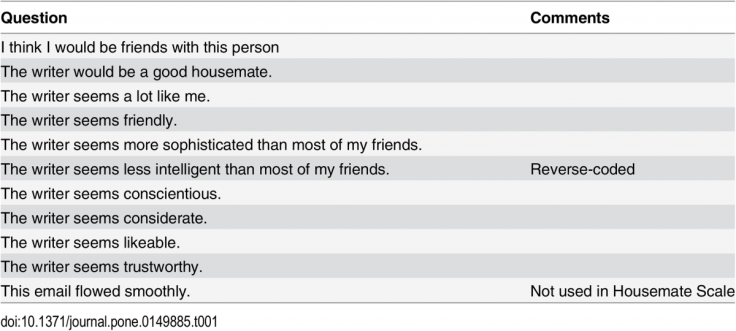Are you a grammar police officer? Personality dictates how you react to written mistakes

Personality traits influence how people react to written errors, bad grammar and spelling mistakes in emails. Scientists have claimed that individuals are less likely to judge an emails author and it's content negatively if they are themselves friendly and extrovert.
Published in PLOS One by linguistics experts from the University of Michigan, the study investigates the relationship between personality traits and the perception of other people in the context of digital communication. "This is the first study to show that the personality traits of listeners/readers have an effect on the interpretation of language", says lead author of the study, Julie Boland.
Judgement and personality
The research points out that social media and emails are transforming the way that we write, with style variations and spelling errors becoming more common. However, the scientists noted that different people react in various ways to these changes.
They conducted a test to determine whether these differences could be explained by personality. Eighty three adults were recruited and instructed to read email responses to an advert for a flatmate. The emails were simulated to reflect three situations: the same content was presented without errors; with grammatical errors only; or with spelling mistakes only.
The participants were asked how many mistakes they spotted, and if they were bothered by them. They also evaluated the writer on social and academic criteria, answering a set of questions regarding perceived intellect and friendliness.

Finally, the volunteers were asked to complete different personality questionnaires, including demographic details such as gender, age, education and socio-economic level. Analysing the data, the scientist's were able to see different associations between personality traits and the way that the email's author was judged.
Whether the recipient was, generally speaking, cordial and pleasant appeared to have the greatest impact on how they were likely to view the sender of the email. Results clearly suggested that less pleasant participants were more sensitive to grammatical errors. The authors have said that is perhaps because they are less tolerant of deviations from conventions.
Being extrovert appeared to make people more open to both grammatical and spelling errors. For their part, highly conscientious participants and those who were less open-minded were very sensitive to spelling mistakes but not to grammatical errors. Age, gender, education levels and other demographic variables did not seem to influence the way the writer was viewed.
The scientists suggest that the negative reactions of 'grammar police' are based more on their own personalities rather than a disdain for errors in written language.
© Copyright IBTimes 2024. All rights reserved.







